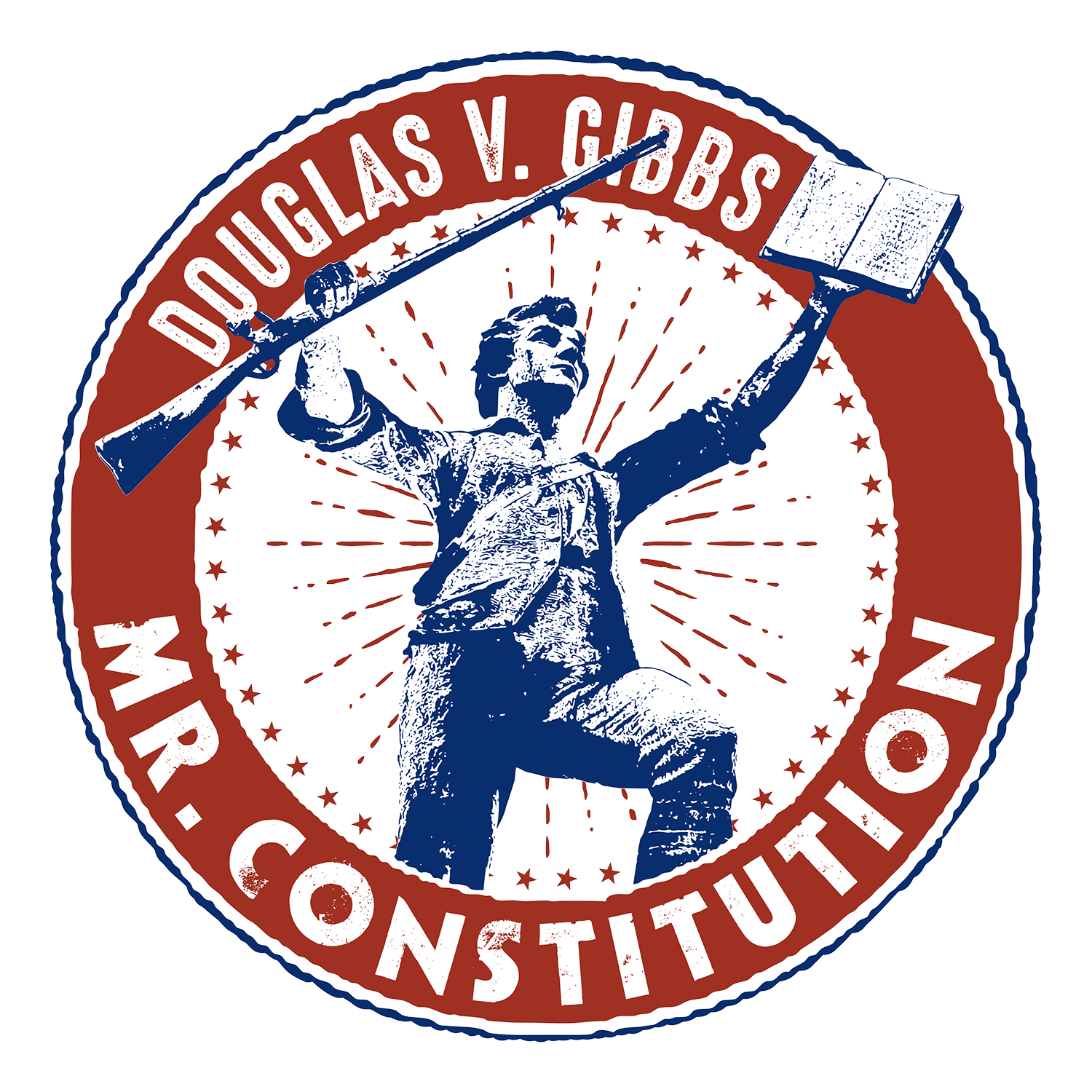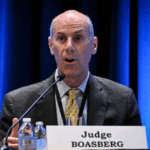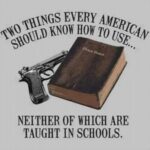By Douglas V. Gibbs
I followed Charlie Kirk’s radio program whenever possible. In many ways, I viewed him as Rush Limbaugh’s natural successor. His ability to debate was anchored in a deep understanding of history, the Constitution, and the Holy Bible. Kirk knew that the original intent of the Constitution carries with it an interesting dynamic. The Founding Fathers believed that the most important part of the country’s ability of retaining its Liberty-centric value system involved maintaining a necessary public relationship between the church and government.
In the Old World, government used The Church as an excuse for its tyranny, and the Founding Fathers understood that a factor in that dangerous dynamic was the existence of an established church. Therefore, in the First Amendment of the Constitution, Congress was prohibited from making any law that would create a state church. However, mindful that Christianity was an integral part of America’s foundation and the success of a free society, the same amendment also included that Congress could make no law prohibiting the free exercise of religion. The clause specifically was directed at the federal government, not state governments. At the time, nine states still had established churches, and upon the ratification of the First Amendment none of those nine immediately outlawed their state religions. The establishment clause recognized that religion is a state issue, and the decision regarding whether or not to have a state church belonged to each state. President Thomas Jefferson in 1801 confirmed the understanding that religion was a state issue in his letters to the Danbury Baptists in Congregationalist-dominated Connecticut.
By the time Alexis de Tocqueville visited the United States in the 1830s, all of the established churches at the state level had been locally outlawed. The states recognized that persons should be able to worship in the manner of their choosing, and that decision should not influence their ability to participate in civic duties, nor should any church receive funding from taxation. This was not to say that Christianity should have no relationship with government at all, however. As Tocqueville wrote in his book, Democracy in America, religion and politics were deeply intertwined in American life, yet institutionally separate. Politicians prayed, and pastors preached politics, but neither controlled each other. This was an interesting dynamic to him because as a Frenchman the secularization of government was an extreme occurrence in his homeland. He wrote:
“In France I had seen the spirit of religion and the spirit of freedom almost always move in opposite directions. In America I found them intimately united and they reigned together on the same soil.”
Tocqueville was struck by how Christianity in America shaped public morality and civic virtue without becoming a tool of government. He noted that “religion was a powerful social force that supported democracy,” not by wielding political power, but by guiding the moral compass of citizens and leaders alike.
“Religion in America,” he wrote, “takes no direct part in the government of society, but it must be regarded as the first of their political institutions… I do not know whether all Americans have a sincere faith in their religion – for who can search the human heart? But, I am certain that they hold it to be indispensible to the maintenance of republican institutions.”
Christianity, according to Tocqueville, was expected to influence political life, but not dominate it. He admired how American pastors could speak to political issues without becoming political actors, and how politicians could invoke religious values without subordinating the church.
What Tocqueville observed was the very thing that the Founding Fathers hoped for, and what Charlie Kirk was striving to reinvigorate in America again. Kirk recognized that the Founders intended for this country to be deeply religious where Christians were bold leaders in the culture, and influential in the public square. John Adams insisted that, “Our Constitution was made only for a moral and religious people. It is wholly inadequate to the government of any other.” Benjamin Franklin provided that, “Only a virtuous people are capable of freedom. As nations become corrupt and vicious, they have more need of masters.”
In my book, “God in the Constitution,” I remind my readers that ‘David Barton’s WallBuilders went through over 15,000 writings and some 3,154 quotations, and the research revealed that the single-most cited authority in the writings of the Founding Era was the Holy Bible. 34% of the documented quotes were taken from the Bible. A percentage almost four times higher than the second-most quoted source, John Locke.’”
Spiritual vitality has long been at the foundation of this country. While the United States was never intended to be a theocracy, it was undeniably founded on a godly framework. The Founders did not seek to merge church and state, but they did expect faith in Christ to shape the moral character of the citizenry and the integrity of the republic. Religion in America was not imposed by law, but embraced by culture. Christianity guided the conscience of the politicians and the convictions of the pastors, without either institution dominating the other. Christianity was not something that was merely tolerated – it was foundational. That foundation, greatly challenged in today’s America, remains essential to understanding what this country was meant to be, and what it must continue to become.
Unfortunately, fallacies that support the concept that the Founding Fathers expected this to be a purely secular nation runs rampant through our culture, and in the classrooms of our educational institutions. A writer, challenging Charlie Kirk’s stance that Christians should be influential on government and the shaping of laws and public policy, recently wrote in Southern California’s “The Village News” that Jesus would be bothered by what Charlie Kirk was up to, quoting Matthew 22:21 and Mark 12:17 in his article. “Render to Caesar the things that are Caesar’s, and to God the things that are God’s.” The challenger to Kirk’s work in his article claimed that Jesus in this verse “made two important points: government has value; government and faith are two distinct entities.” If Mr. John H. Terrell, the author of the article in question, possessed critical thinking skills, he might have seen how he had fallen for secular logical fallacies to support his position. But, as an admitted non-Christian, he was unable to put the proper pieces together.
Jesus did not advocate for a theocracy, but He did teach that His followers should live out their faith publicly – including civic life. Apostle Paul explicitly affirmed that government is ordained by God and that believers should engage with it righteously. Jesus Himself influenced government through moral authority, and Paul’s writings in Romans 13 and 1 Timothy 2 show that Christians are called to be a godly influence on rulers and laws.
As for the verses in Matthew and Mark referenced above, the call by Jesus was not one of strict separation. It was a rebuke to hypocrites trying to trap Him. He affirmed legitimate civil authority while reminding them that ultimate allegiance belongs to God. In John 18:36, Jesus tells Pilate, “My kingdom is not of this world.” This shows He didn’t seek political control. But, His teachings radically shaped how governments would later understand justice, mercy, and human dignity. Jesus influenced government not by holding office, but by challenging unjust power structures, confronting corrupt religious leaders, and inspiring movements that would later shape Western legal and moral systems.
In Romans 13:1-7, Paul teaches that “there is no authority except that which God has established.” He calls Christians to respect and obey government, but also that rulers are accountable to God for justice. In 1 Timothy 2:1-2, Paul urges believers to pray for kings and all in authority, “that we may live peaceful and quiet lives in all godliness and holiness.” This is a call to spiritual influence over civic life, not withdrawal. Paul himself used his Roman citizenship to appeal to Caesar (Acts 25:11), showing that believers can engage with legal systems to uphold truth.
Tocqueville observed that in America. Christianity shaped public virtue without controlling government, and government respected religion without suppressing it. The Founding Fathers, well educated about Scripture and the words of Jesus and Paul, recognized that faith should influence government, not through domination, but through moral clarity, prayer, and principled engagement. Christianity was never meant to be politically silent.
No Christian believes there should be “Christian Nationalism” as is being falsely spewed by leftwing voices, but Christians continuing to carry the torch that Charlie Kirk so bravely carried do believe that Christians should actively engage in the public square, and that Christian values and godly principles ought to be involved in shaping laws and public policy. And understand, we are not talking about a particular denomination of Christianity rising to the top and dominating, as suggested by Mr. Terrell in his article. There is no desire to “prevail” as the dominant force as perhaps an authoritarian-minded progressive might think when entertaining their own thoughts of dominating over their opposition or anyone who would dare question their ideological madness. Despite his argument, there is indeed one monolithic Christian faith that each of those denominations follow, and it is contained in Scripture. It is true, each religious denomination may have differences in application or other details of their religiosity. Religion, after all, is imperfect for it is man-made. It is faith in Christ, which is God-made, that we are addressing, here.
Our Constitution has been in effect for 236 years with Christianity at its foundation, and that influence by Christian values and Christians willing to debate in the public square, behind the pulpit, and in the Halls of Government are the reason this country has worked out so well, and remains the greatest country in the world. Charlie Kirk was wise enough to carry on an important tradition that the Founding Fathers called for: Christians engaging in the political process, and Scripture having an influence on our political direction as a country. We need more like Charlie Kirk. The struggle to maintain our Christian foundation has become a heavy burden, of late, and we need as many Christian voices as we can muster to carry forward the torch that Charlie Kirk so courageously wielded.
— Political Pistachio Conservative News and Commentary



